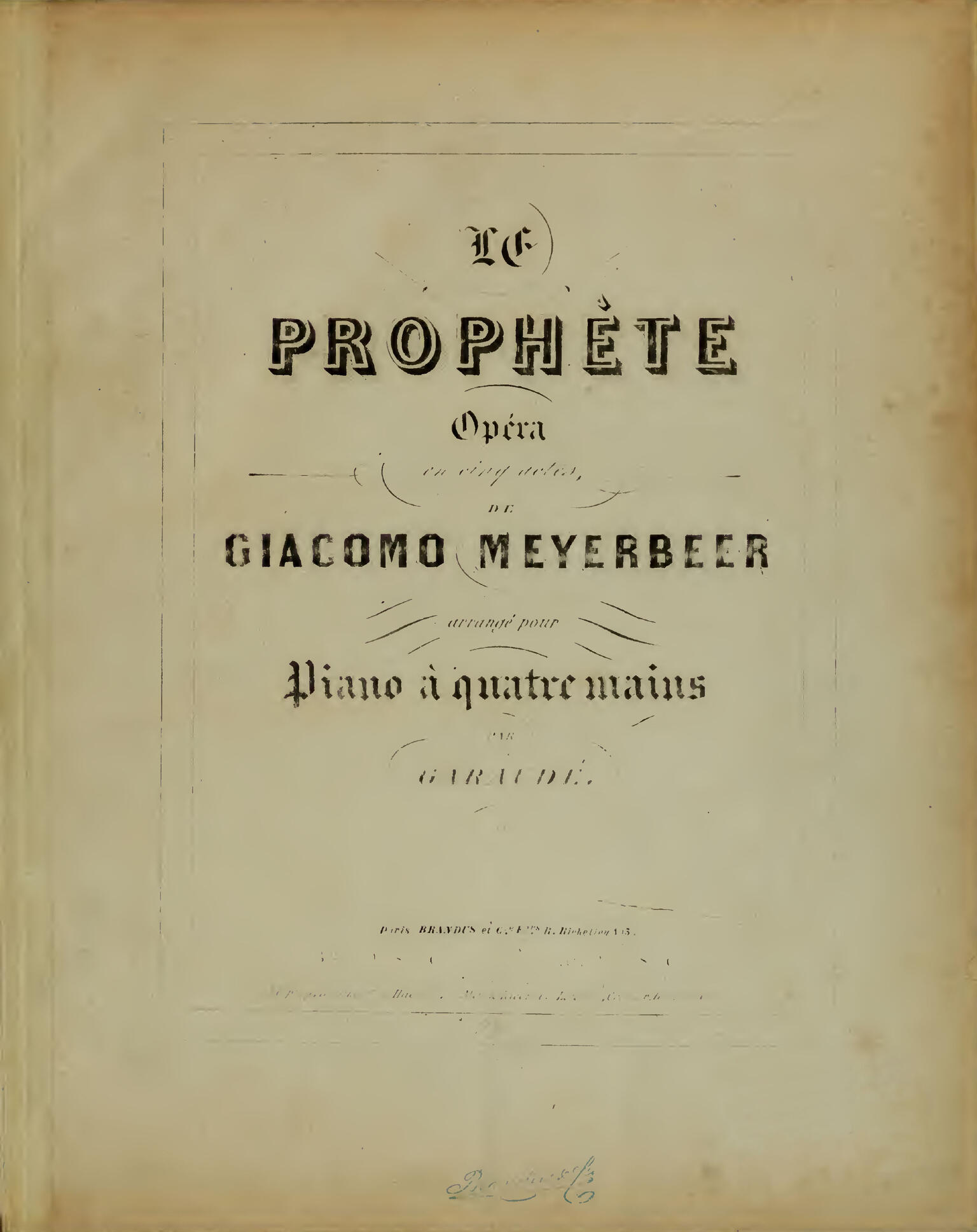Le prophète
Giacomo Meyerbeer
1849
Le prophète (The Prophet) is a grand opera in five acts based on the life of John of Leiden, a sixteenth-century Anabaptist leader. It premiered in Paris in 1849 and was soon being performed in London and Germany. The opera’s Paris debut was the first time that electric arc lights were used on a stage.
Credits
Giacomo Meyerbeer, from Le prophète (opera), arranged by Charles-Valentin Alkan, overture by Alexis de Garaudé (Paris: Brandus, n.d.), Plates B. et Cie. 5191, 5111.
Published in: The Posen Library of Jewish Culture and Civilization, vol. 6.
You may also like
The Brazilian’s Song from the Opera La vie parisienne
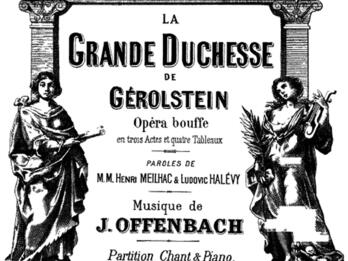
La Grande-Duchesse de Gérolstein
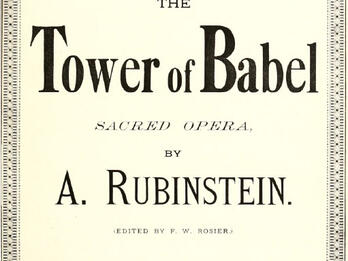
Der Thurm zu Babel (The Tower of Babel)
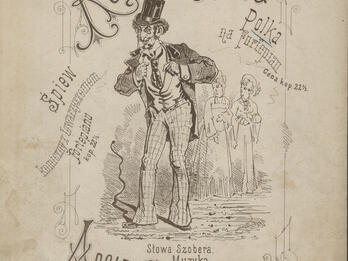
Kantorzysta: Polka na fortepiano, op. 68
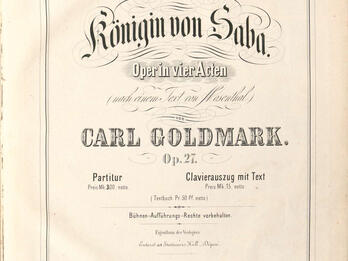
The Queen of Sheba
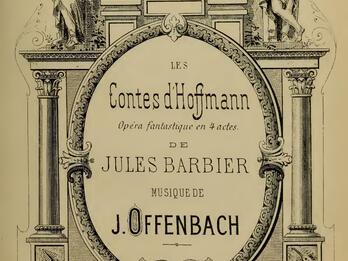
Tales of Hoffmann
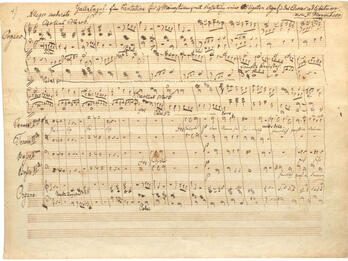
Related Guide
Music and Opera in Jewish Culture
One of the most striking changes in European Jewish culture toward the later eighteenth century was marked by the entry of Jews into art music, opera houses, and the stage.
Creator Bio
Giacomo Meyerbeer
A pathbreaking composer, Giacomo Meyerbeer surprised and delighted generations of opera fans in Europe and around the world. To the staid formula of live performances, he added sound effects, electric spotlights, and an erudite conception of history, making opera at once smarter and more spectacular. Meyerbeer was born Jacob Liebermann Beer, in Prussia, to a wealthy Jewish family. He studied piano and composition before finding success with the Paris Opera. Condemned by the antisemitic Wagner, Meyerbeer’s reputation suffered, though he is today credited with transforming his chosen medium, making opera more attractive to its audiences.
You may also like
The Brazilian’s Song from the Opera La vie parisienne

La Grande-Duchesse de Gérolstein

Der Thurm zu Babel (The Tower of Babel)

Kantorzysta: Polka na fortepiano, op. 68

The Queen of Sheba



